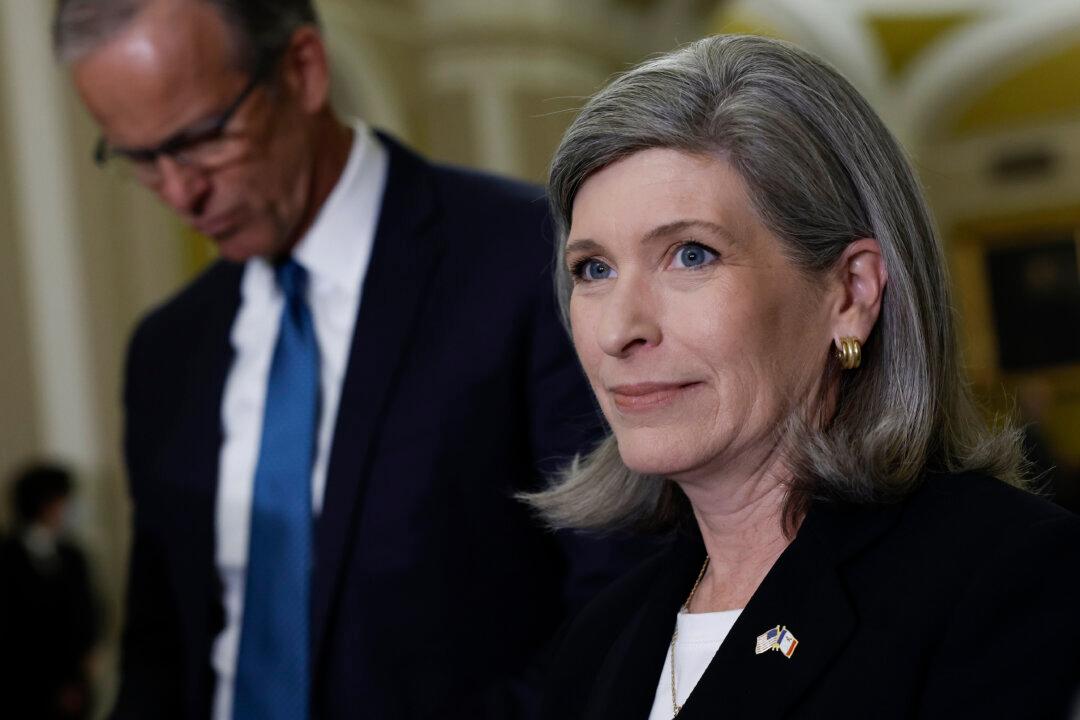
Sen. Joni Ernst (R-Iowa) at a June 2023 Washington press conference with Sen. John Thune (R-S.D.). Anna Moneymaker/Getty Images
Sens. John Fetterman (D-Pa.) and Joni Ernst (R-Iowa) introduced the bipartisan Banning Oil Exports to Foreign Adversaries Act on March 21.
The legislation will ban the sale or export of oil from the U.S. Strategic Petroleum Reserve (SPR) to foreign enemies.





